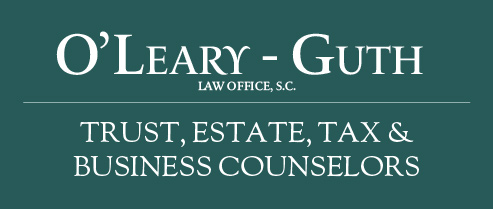All the Buzz about B Corps
Posted: November 21, 2021
Written by Attorney Maureen O'Leary, President
As we enter the holiday shopping season, you may notice some businesses advertising that they are “B Corps”. B Corps claim to be the gold standard for good business practices that try to inspire a “race to the top” with respect to social and environmental performance, accountability and transparency. Given all the buzz about B-Corps, business owners may wonder if their business should consider becoming a B Corp, but is it just a marketing gimmick, or are there real tax, legal and business consequences?
What is a B Corp?
B Corp certification is a third-party certification by the non-profit “B Lab.” There are currently over 3,500 certified B Corps in more than 70 countries. Patagonia, Ben & Jerry’s, Athleta, and Allbirds are a few B-Corps that immediately come to mind.
In order to become a B-Corp a company must complete a 200-question application designed to measure the company's impact on its workers, community, customers and the environment. Companies that pass the assessment must pay an annual certification fee ranging from $1,000 - $50,000+ annually depending on the company size.
B Lab has announced overwhelming demand for the certification, with the review process taking 6-10 months to complete. B Lab estimates that approximately 1 in 3 companies that apply will qualify for the certification. B Corps are also subject to ongoing site assessments, audits, and recertification requirements.
Tax Consequences of a B Corp?
Certification as a B Corp is not a tax election. It makes no difference to the IRS whether a company is a B Corp. For example, being an S-Corporation or a C-Corporation is a tax classification, and is completely unrelated to whether or not a company is a B Corp. An S-Corporation that becomes certified as a B-Corp is still an S-Corporation for tax purposes.
Legal Consequences of a B Corp?
While B Corp certification does not have direct tax consequences, it can have legal consequences. This is because B Lab requires that any companies certifying as a B-Corp also register with their state as a “Benefit Corporation” if their state offers a Benefit Corporation filing option. Being a B-Corp (the third-party certification from B-Labs) and being a Benefit Corporation (a legal registration with the state) are two different things that are often confused with each other.
Benefit Corporations are Different from B-Corps
In 2017, Governor Walker added a chapter to the Wisconsin Statues titled “Benefit Corporations” (chapter 204). A Wisconsin company can organize as a Benefit Corporation pursuant to this statute if it has a “general public benefit”. A general public benefit is defined as “having a material positive impact on society and the environment by the operations of a benefit corporation taken as a whole, through activities that promote some combination of specific public benefits.”
In addition to a general public benefit, a Benefit Corporation may have a “specific public benefit”. A specific public benefit is defined as:
(a) Providing low-income or underserved individuals or communities with
beneficial products or services.
(b) Promoting economic opportunity for individuals or communities beyond the
creation of jobs in the normal course of business.
(c) Preserving the environment.
(d) Improving human health.
(e) Promoting the arts, sciences, or advancement of knowledge.
(f) Increasing the flow of capital to entities with a public benefit purpose.
(g) The accomplishment of any other particular benefit for society or the environment.
The key legal significance of being a Benefit Corporation is that it requires its directors and officers to consider the interests of a broad group of stakeholders when making decisions (such as the impact of decisions on employees, local community, and the environment), and not just the interests of shareholders.
Benefit Corporation status can also help shareholders hold the company accountable for the company’s public benefit commitments.
All Wisconsin B Corps are Benefit Corporations, but not all Wisconsin Benefit Corporations are B-Corps
Wisconsin businesses can organize as Benefit Corporations under the Wisconsin statutes without applying to B Lab for certification as a B Corp. Even though B Lab requires B Corps to organize as Benefit Corporations, there is no requirement for all Wisconsin Benefit Corporations to certify as B-Corps with B Lab.
Conclusion
In summary, certification as a B-Corp appears to be primarily a marketing tool that allows companies to show the world they hold themselves to high standards. Whether or not certification through B-Lab and the expense that goes with it is worthwhile is a decision every company will need to make for itself.
Regardless of whether a Wisconsin company certifies as a B-Corp through B-Lab, registration as a Wisconsin Benefit Corporation remains an option for all Wisconsin businesses to help directors and shareholders pursue their social missions.
Schedule an appointment with us today.
Meet with a knowledgeable attorney who specializes in your area of law.
FIND US O’Leary-Guth Law Office, S.C.
1251 W. Glen Oaks Lane, Mequon, WI 53092
1251 W. Glen Oaks Lane, Mequon, WI 53092
CALL US P: (262) 238-6996
F: (262) 238-6999
F: (262) 238-6999

